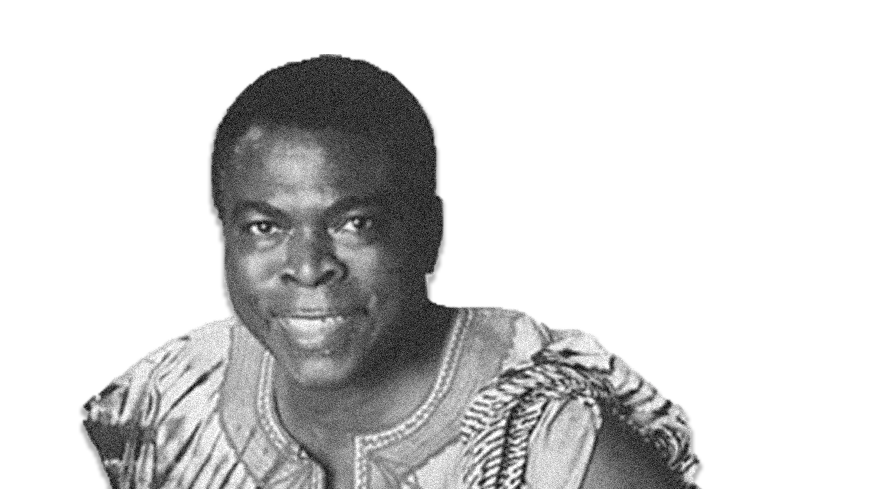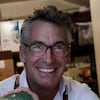Unstoppable.
Obo Addy was a force of nature. In a musical career spanning six decades, he brought an irrepressible energy to audiences around the globe. Performer, composer, teacher, and cultural ambassador, Addy was both traditionalist and innovator—in particular, he was one of the pioneers of worldbeat.
Addy was born in 1936 in Accra, Ghana, to a musical family. He and his many brothers learned to play the drum from their father, a medicine man and leader among the Ga people. A musical prodigy, Addy started playing traditional Ga music at the age of 6, but soon picked up pop, blues, and jazz. After World War II, Ghanaian musicians fused these influences into a popular genre known as highlife. Addy became a leading proponent of the style, bringing it to audiences in Germany and the U.K., where it would be better known as worldbeat.
Addy came to Portland in 1978 where he thrilled local audiences with not one but two bands: Okropong (“eagle” in the Ga language) used traditional instruments to perform Ga music and dance. Kukrudu (“earthquake”) brought together African and Western influences into a unique, unforgettable sound built on guitar, bass, a mighty horn section, and Addy’s spellbinding rhythms.
Addy started the annual Homowo Festival in 1989, drawing thousands of fans to Portland to celebrate the joy of music by bands like Kukrudu and Boka Marimba. He taught at Lewis & Clark College for many years and held weekly drumming lessons at Lincoln High School.
Addy earned dozens of honors from the National Endowment for the Arts, the Oregon Arts Commission, and the Governor’s Arts Award, and was inducted into the Oregon Music Hall of Fame in 2007.
Addy continued performing to the end, playing in jam sessions in the final days before his death from liver cancer in 2012. Thanks to the efforts of the Obo Addy Legacy Project, African drumming is taught in many Portland schools. The beat goes on.
 Opens in new window
Opens in new window
